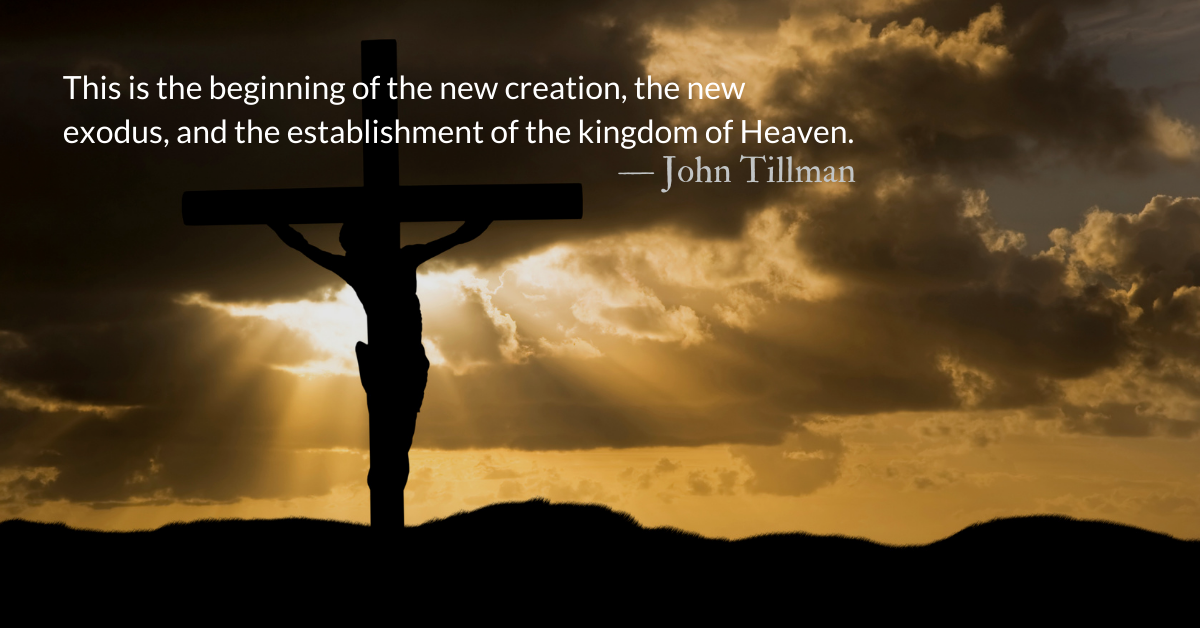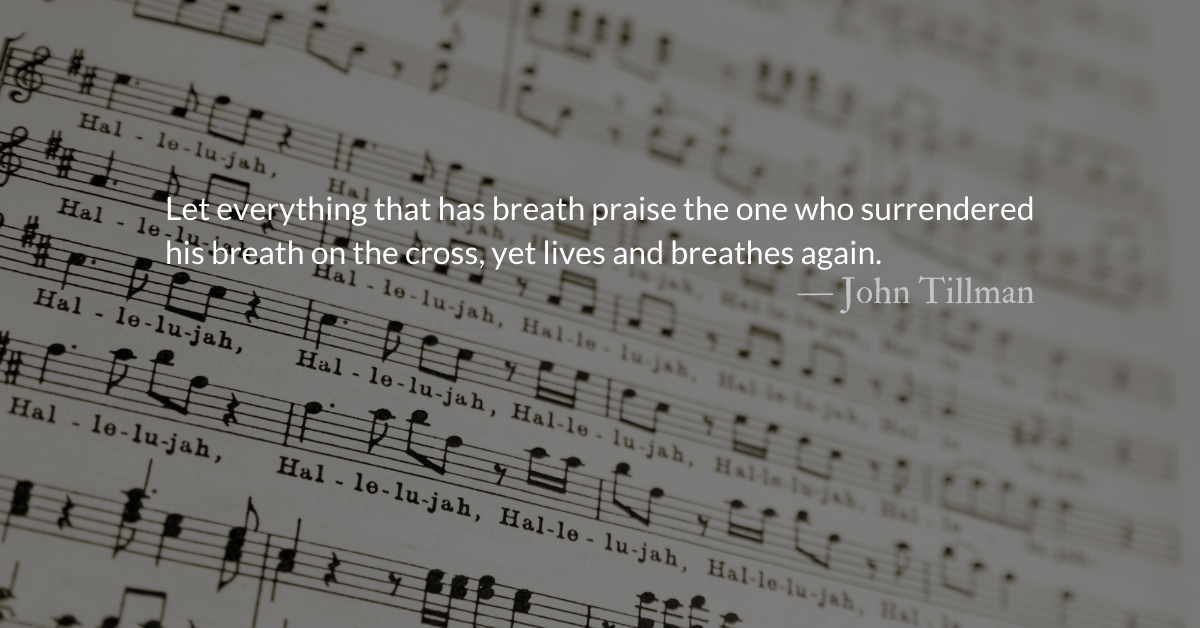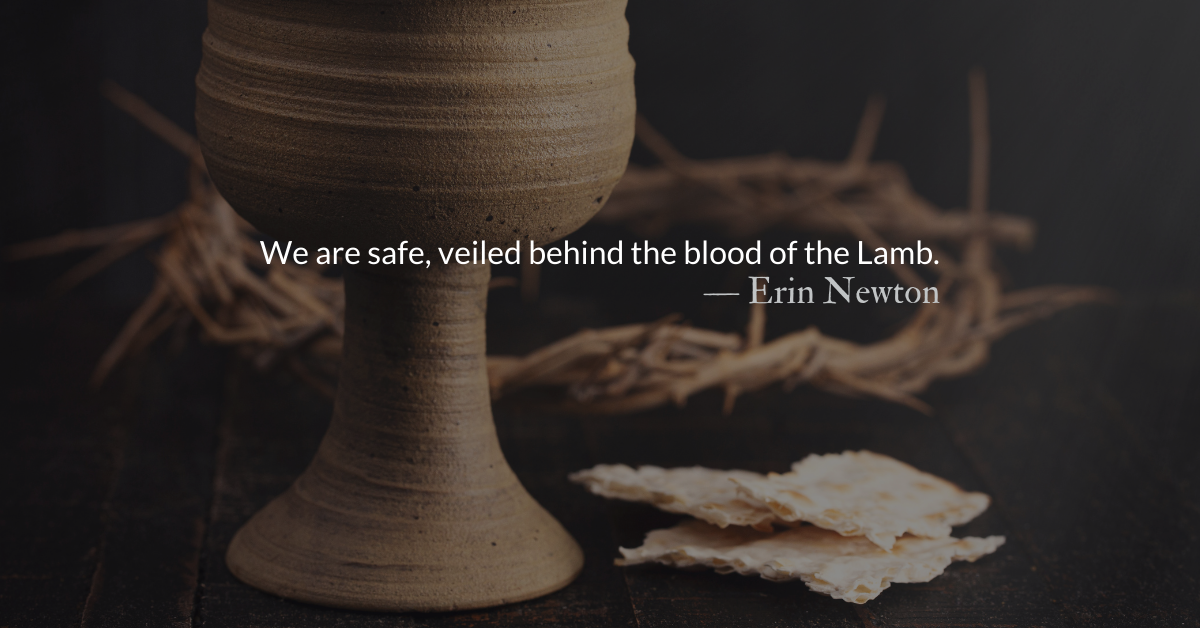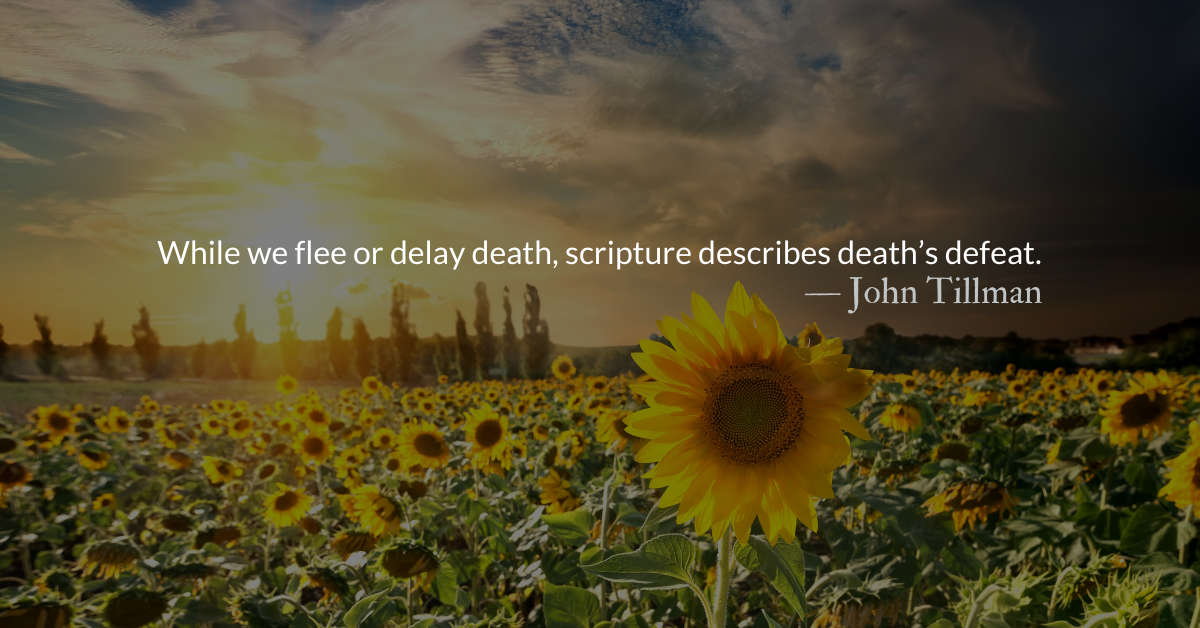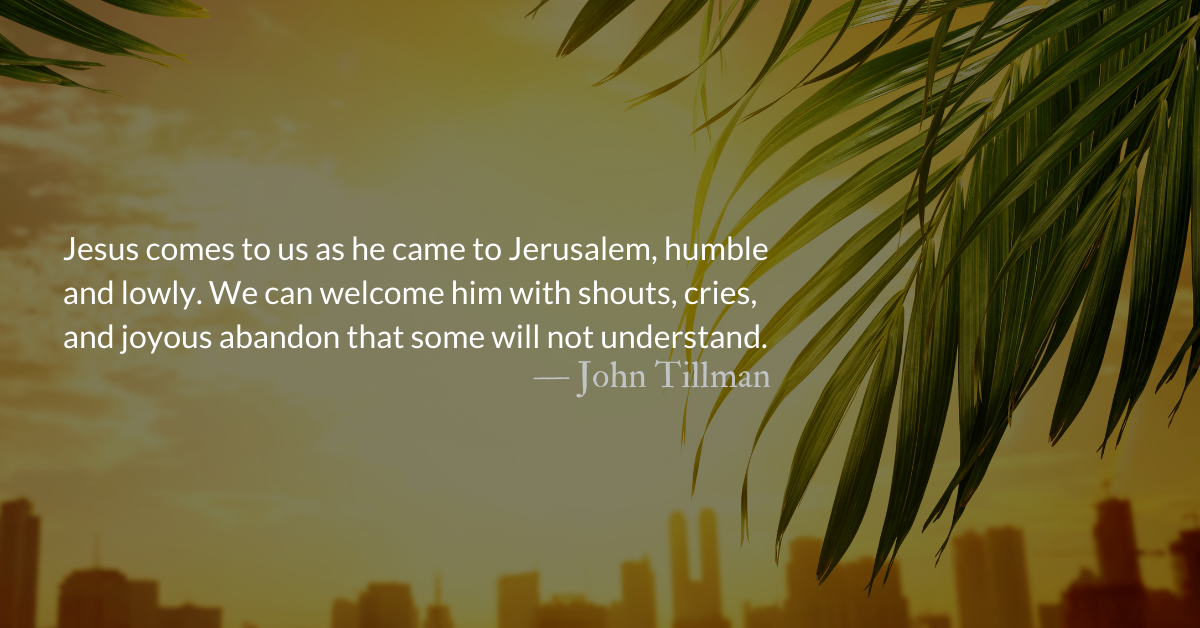Scripture Focus: John 1.4, 29
4 In him was life, and that life was the light of all mankind. 5 The light shines in the darkness, and the darkness has not overcome it.
29 The next day John saw Jesus coming toward him and said, “Look, the Lamb of God, who takes away the sin of the world!
Joel 2.12, 30-32a
12 “Even now,” declares the Lord,
“return to me with all your heart,
with fasting and weeping and mourning.”
30 I will show wonders in the heavens
and on the earth,
blood and fire and billows of smoke.
31 The sun will be turned to darkness
and the moon to blood
before the coming of the great and dreadful day of the Lord.
32 And everyone who calls
on the name of the Lord will be saved;
for on Mount Zion and in Jerusalem
there will be deliverance
Reflection: New Creation, Exodus, and Kingdom
By John Tillman
The gospels are uniquely marked by the character and style of their authors.
Mark is like an on-the-scene reporter, chasing down the action and describing what just happened. Matthew is like a measured legal commentator, stating Jesus’ legal case as the Messiah in the Sunday New York Times. Luke, together with Acts, is like a Ken Burns documentary with investigative rigor and long, revealing conversations with experts. John is like an art-house film with heavy symbolism, strange camera angles, and asynchronous storytelling.
John carefully connects the beginning of his gospel with the beginning of Genesis and the story of the Exodus. He poetically quotes or imitates words, thoughts, and ideas from these texts. If these texts were songs, John would be singing his lyrics to the same melody.
John’s gospel tells us that a new creation is beginning with light being spoken into the darkness. He tells us that a new exodus is beginning with a crushing defeat for the empire of death and a stunning escape through the depths of the sea—a common symbol of the grave.
The New Testament, and particularly the gospels, do not erase the Old Testament. If anything they turn up the volume and remix the message in a new way. Jesus said he came to “complete” not abolish the scriptures.
Today, called Good Friday in the church calendar, is a day when Jesus partly completed many Old Testament prophecies, including portions of Joel’s account of the Day of the Lord.
Darkness, blood, earthquakes, resurrections, and the tearing of the curtain of the Temple all occurred during the crucifixion. These wonders upon the earth caught the attention of even the jaded executioners of Jesus. One centurion stood in front of Jesus when he died and seeing all that happened, proclaimed Jesus the righteous Son of God. (Matthew 27.54; Mark 15.39; Luke 23.47)
The darkness of Good Friday catches our attention, pulling our eyes off of anything that might distract us from the coming explosion of light that the resurrection will be. Joel says, “Everyone who calls upon the name of the Lord will be saved…on Mount Zion and in Jerusalem there will be deliverance…”
Let us stand, awestruck, before the cross today and say, “This is the righteous Son of God.” This is the beginning of the new creation, the new exodus, and the establishment of the kingdom of Heaven.
Divine Hours Prayer: The Refrain for the Morning Lessons
My God, my God, why have you forsaken me and are so far from my cry and from the words of my distress? — Psalm 22.1
Today’s Readings
Joel 2 (Listen – 1:39)
John 1 (Listen -6:18)
This Weekend’s Readings
Joel 3 (Listen – 3:20), John 2 (Listen -3:02)
Amos 1 (Listen – 2:38), John 3 (Listen -4:41)
Read more about Unprecedented Spirit
The very Spirit promised in Joel and poured out in Acts is a deposit, a guarantee, of the inheritance God has for each of us in Christ.
Read more about Love in His Name
Jesus enters a world rightly his, a world he lovingly created, and a world he now prepares, lovingly, to save.

